
Pradeep Natarajan
@pnatarajanmd
Dir of Prev Cardiology @MassGeneralNews | Assoc Dir of Personalized Med @MassGenBrigham | Assoc Prof @harvardmed @HarvardChanSPH | Assoc Mem @broadinstitute
ID: 414751406
http://natarajanlab.mgh.harvard.edu 17-11-2011 12:54:42
16,16K Tweet
24,24K Takipçi
809 Takip Edilen

Registration: us02web.zoom.us/meeting/regist… Hope to see you tonight 5/21 7:30-8:30p ET / 4:30-5:30p ET! INDIAspora


Pleased to share our JAMA Cardiology study developing an improved polygenic score for PAD! Very grateful for mentorship from Aniruddh Patel and Pradeep Natarajan on this; and to work alongside Yunfeng Ruan🌻 #StandWithUkraine🌻 and the rest of our group! 🧬🧬 Broad Institute Mass General Heart Mass General Surgery

“Being South Asian is a risk enhancer..for heart disease.” -Martah Gulati, Director of CVD Prevention at Cedars Sinai (Dr. Martha Gulati ♥️🫀❤️🩹🇨🇦)

Congrats Pradeep Natarajan on organizing - nice to see some familiar faces discussing the importance of #SouthAsianCVD. 🙏🏼 for mentioning our Practice Statement in AJPC (🔗sciencedirect.com/science/articl…) & Dr. Martha Gulati ♥️🫀❤️🩹🇨🇦 on discussing the role of #CAC testing. Johns Hopkins Ciccarone Center

Wonderful forum hosted by Indiaspora MR Rangaswami ft Vivek Murthy w panelists Pradeep Natarajan Dr. Martha Gulati ♥️🫀❤️🩹🇨🇦 A. Mathur, R. Dash, & L. Palaniappan on cardiovascular health- what we know & what we don't know! Full broadcast youtube.com/watch?v=zi5NDt… 💜ourhealthstudy.org


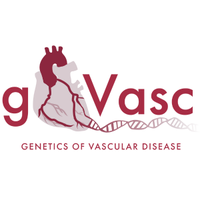


A great paper in Nature Genetics from the David R. Liu and Ricardo Mouro Pinto labs shows a promising therapeutic strategy using gene editing to prevent repeat expansions in trinucleotide repeat disorders. Some of the most elegant therapeutic designs come from Nature. Human genetics
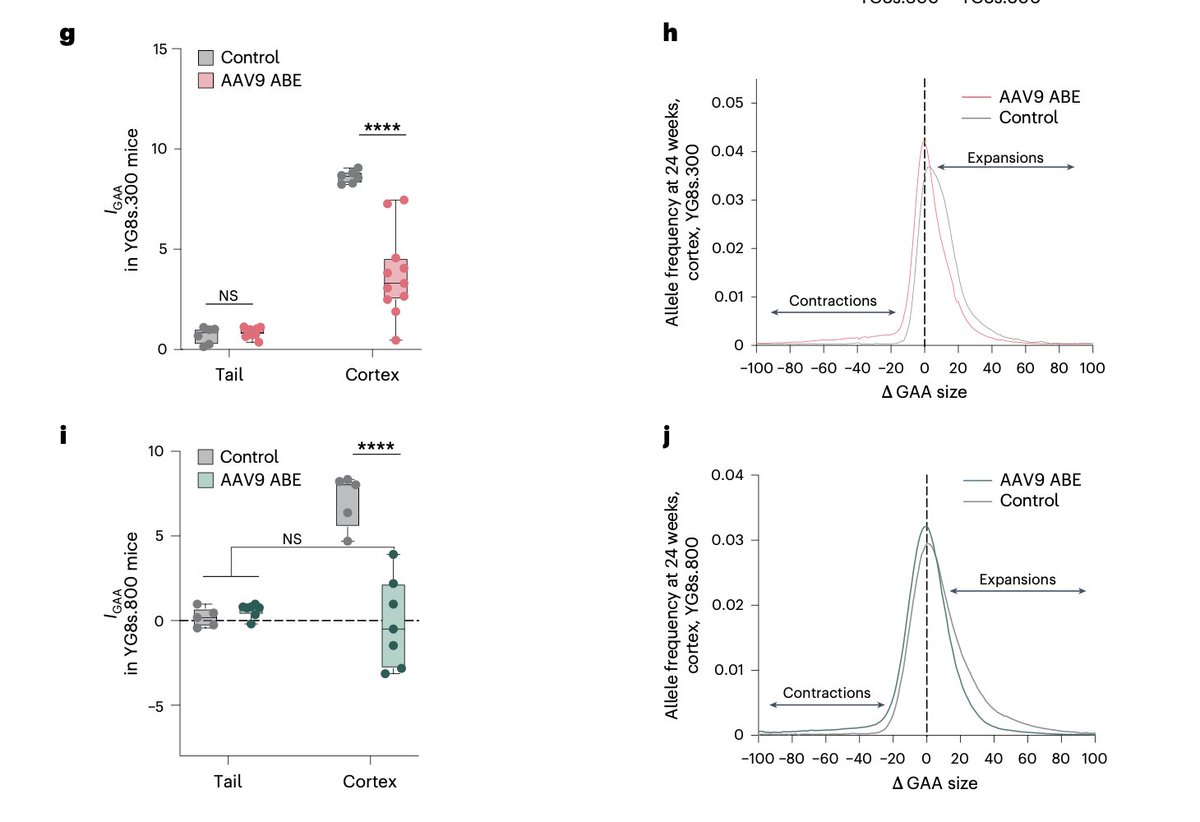

Exciting to have two of the residents working with us give talks MassGeneral Medicine Grand rounds for 2025 Resident Research Day this Thursday! Roger Zou (working w Aniruddh Patel) & Amanda Jowell (working w Michael Honigberg, MD, MPP)
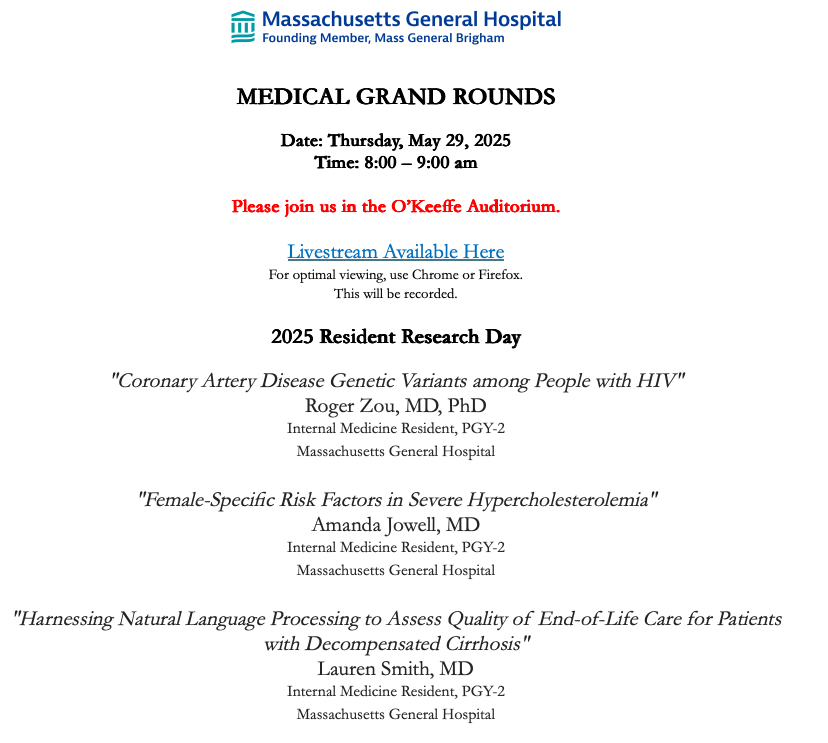

Delighted to write this viewpoint with Catherine T, DVM, PhD | #BlackInCardio team & C. Robinson on gleaning and translating genomic insights across communities ahajournals.org/doi/10.1161/JA… JAHA AHA Council on Genomic and Precision Medicine
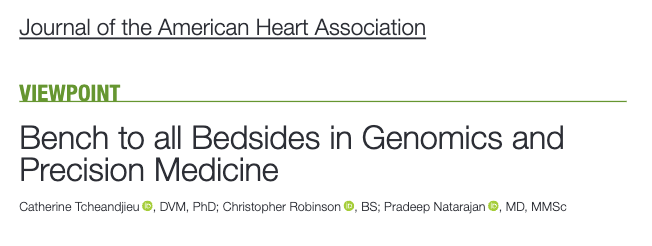

HUGE congrats to graduating MGH Cardiology Fellows Sarah Urbut Sumeet Khetarpal, both 🌟 preventive cardiologist-scientists, for receiving Burroughs Wellcome Fund Career Awards for Medical Scientists!! We are thrilled that Sarah Urbut will stay with us Mass General Heart Broad Institute & also


The gVasc Study is live—thanks in part to the efforts of resident Tiffany Bellomo! This important initiative aims to uncover the genetic foundations of SCAD by sequencing as many patients as possible. SCAD survivors can self-enroll today at gvascstudy.org.
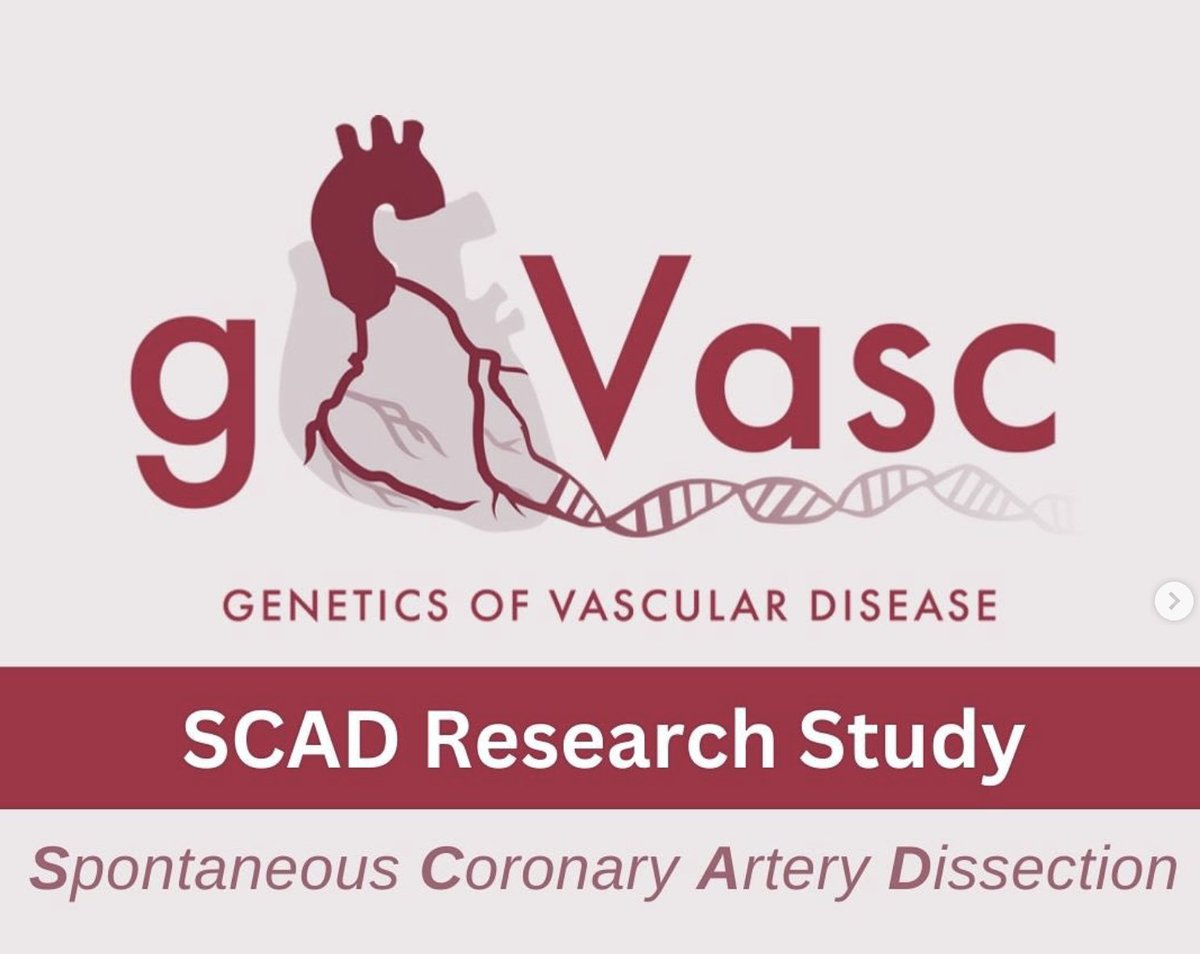


Very cool work by Rahul Gupta NealeLab /labneale.bsky.social Vamsi Mootha, and delighted to contribute. Super cool new connections between mtDNA mutational burden in blood & clonal hematopoiesis 👇

.gVasc Study is operational and thriving in large part due to 🌟Mass General Vascular resident Tiffany Bellomo! SCAD Alliance iSCADregistry #scad



